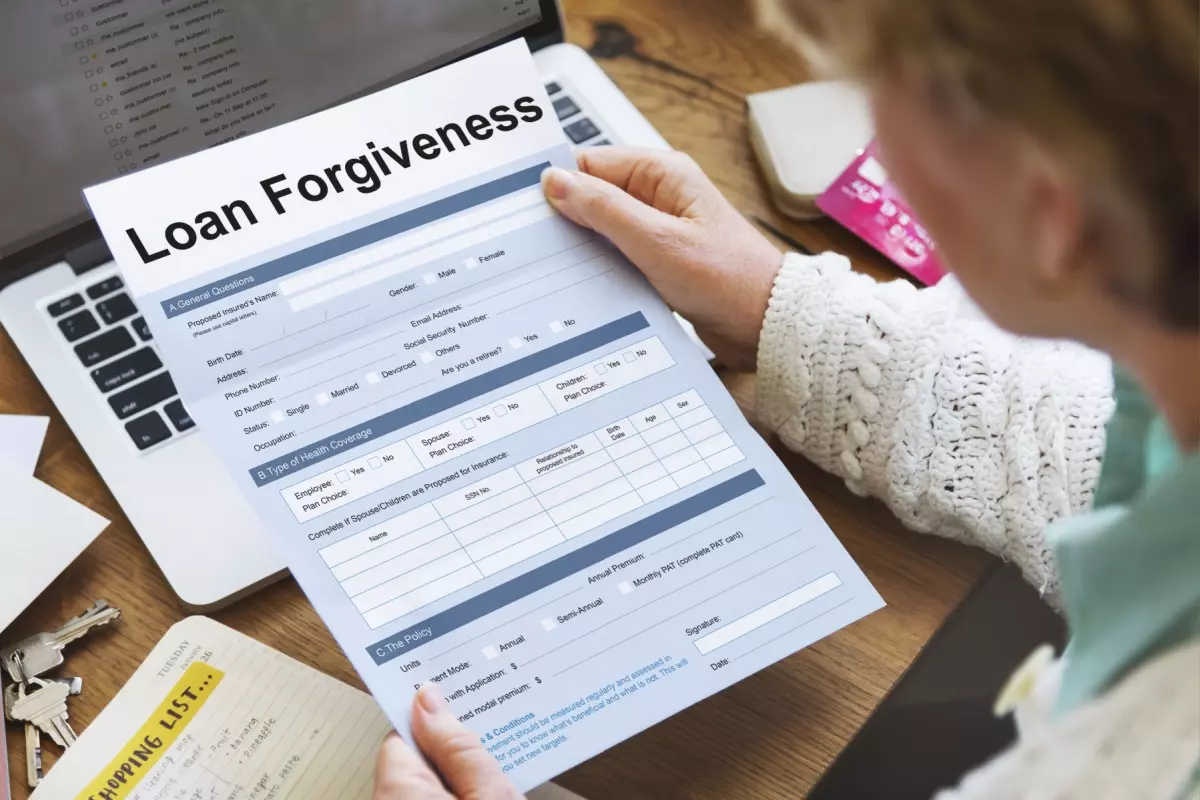Can the Elderly Stop Paying Credit Cards & Debts?
As the golden years approach, the dream of living free from financial worries often clashes with the reality of credit card debt for many seniors. Many seniors often retire with open credit card accounts and high levels of debt. This leads to the question: Can the elderly stop paying credit card debts?
We don’t suggest forgoing payments altogether, but there are debt cancellation and consolidation options available that can help lower your interest rates or even clear a portion of your debt. Keep reading to learn how the elderly can stop paying credit card debt.
Why Are More Seniors Using Credit Cards?
The increase in credit card use among seniors is due to several key reasons. As living costs rise faster than pensions or savings can keep up, retirees often use credit cards to manage the shortfall. This means when groceries, utilities, or other everyday expenses become too much, credit cards become a go-to solution.
Unexpected medical bills are another major factor. Healthcare costs can skyrocket quickly, and for many seniors, a credit card is the fastest way to cover these expenses, especially during an emergency.
Lastly, maintaining their standard of living is a strong motivator for seniors to use credit cards. Credit cards allow seniors to continue enjoying life without immediate financial strain, whether for travel, hobbies, or simply enjoying dining out.
However, relying on credit cards can lead to a risky financial balance. While they offer quick debt relief for seniors, there’s the danger of accumulating balances that are hard to pay off, especially on a fixed income. This situation requires careful management to be financially ready to retire and avoid a debt trap that could impact financial stability and peace of mind.
Understanding Credit Card Forgiveness for the Elderly
Credit card forgiveness for seniors means some or all of their credit card debt might be erased under specific conditions. These conditions vary across different credit card types.

This can make a big difference for seniors on fixed incomes, helping reduce financial stress during retirement. Let’s break down how this works, who qualifies, and the benefits it brings.
Credit Card Types and Forgiveness
Credit card debt forgiveness is not uniform across the board but varies significantly depending on the type of credit card and the issuer’s policies. Here are the most popular types of credit cards and their debt-forgiveness options:
- Standard Credit Cards: Forgiveness programs might focus on reducing interest rates or waiving late fees, especially if the senior has a history of on-time payments but faces a sudden financial hardship.
- Rewards Credit Cards: For these cards, issuers might be more stringent with forgiveness but could offer to convert accumulated rewards into payment towards the debt under certain conditions.
- Secured Credit Cards: Since these cards are backed by a cash deposit from the cardholder, forgiveness might involve applying the deposit towards the outstanding balance, thus reducing the debt.
- Premium Credit Cards: With higher fees and rates, premium cards might offer specific hardship programs that include reducing debt in exchange for relinquishing certain premium benefits.
What Does Credit Card Forgiveness Entail?
For seniors, credit card forgiveness programs are designed to lighten the debt load. These programs can either reduce the total amount owed, lower interest rates to make payments more manageable, or, in some cases, eliminate debt. The goal is to offer relief to those who find themselves overwhelmed by credit card balances in their retirement.
Qualifying for Forgiveness Programs
To be eligible for debt relief programs for seniors, elders typically need to show that they face financial challenges. This could be due to decreased income as they move from working to retirement or unexpected expenses that have made it hard to keep up with payments. Each program has its own set of requirements, but the general idea is to assist those who genuinely need help.
Proof of financial hardship might include:
- A detailed account of monthly income and expenses.
- Documentation of any unexpected financial burdens, like medical bills.
- A comparison of income before and after retirement.
Benefits of Credit Card Forgiveness
The advantages of qualifying for a forgiveness program are significant, serving as a strategy to aggressively pay off debt. Reducing the overall debt amount can make it easier to manage monthly expenses and save for emergencies.
Lower interest rates mean more of each payment goes toward the principal rather than just covering the interest, speeding up the debt elimination process. In the best-case scenario, having debt completely wiped out offers a fresh start, financially speaking.
Debt Forgiveness for Seniors
For seniors facing the challenge of debt, there are specific programs aimed at providing relief.

These options vary, offering everything from reducing what you owe to making repayment terms easier and sometimes wiping out the debt altogether. Let’s delve into the types of programs available and how to apply for them.
Debt Reduction Programs
Debt reduction programs work by negotiating directly with creditors to reduce the total amount of debt owed. This could mean lowering the principal balance, reducing interest rates, or waiving late fees.
To qualify, seniors in debt typically need to demonstrate financial hardship, which could include a significant reduction in income upon retirement or unexpected medical expenses. Proof of income, a detailed list of debts, and monthly expenses may be required.
The main advantage is the opportunity to significantly lower the debt burden without paying the full amount owed. This can lead to more manageable monthly payments and a quicker debt-free path.
Debt Management Plans (DMPs)
Offered through nonprofit credit counseling agencies, DMPs consolidate multiple debts into a single payment made to the counseling agency, which then distributes payments to creditors. These plans often negotiate lower interest rates and waived fees.
To qualify, seniors must have a steady source of income to make the monthly consolidated payment. A counseling session, where financial situations are assessed, is usually the first step.
DMPs simplify the repayment process, potentially lower interest rates, and help avoid the negative impacts of debt settlement on credit scores. They also provide a structured path to paying off debt.
Debt Settlement Programs
Debt settlement programs are another solution to how can the elderly stop paying credit card debts. A specialist will negotiate with creditors on your behalf. If successful, they may allow you to pay a lump sum less than the total amount you owe. The rest of the debt is forgiven.
This option is generally available to those who can prove that they cannot pay off the total amount of their debt but can afford a lump sum payment. A history of missed or late payments may aid in qualifying, as it shows financial distress.
The primary benefit is substantial debt reduction. However, this option can negatively impact your credit score and may have tax implications, as forgiven debt can be considered taxable income.
Steps for Applying
Applying for these programs typically involves a few key steps:
- Assess Your Financial Situation: Gather all your financial information, including income, debts, and monthly expenses. This helps you understand which program might fit your situation best.
- Research Programs: Look into each program’s requirements. Some might need proof of financial hardship or a minimum amount of debt.
- Contact a Credit Counseling Agency: Nonprofit organizations such as the National Foundation for Credit Counseling (NFCC) and the Financial Counseling Association of America (FCAA) offer invaluable assistance in understanding your debt relief options, including the benefits and drawbacks of each.
- Apply: Once you’ve chosen a program, you must complete the required paperwork and provide the necessary documentation. This might include proof of income, a list of debts, and information about your financial hardship.
- Follow Through: If accepted into a program, keep up with the agreed-upon payment plan or terms. Failing to do so can result in being removed from the program and losing the benefits.
Managing Credit Card Debt as a Senior
Clearing large sum credit card debts is the first step to better financial security during retirement. You must also maintain good financial habits to prevent falling back into significant debt. Let’s break down some proven strategies to manage and reduce debt, ensuring a sustainable path to financial health:
- Start with a Budget: List all your monthly income sources and expenses. This will help you see where your money is going and find areas to cut back. The money saved can then be directed towards paying off your debt.
- Prioritize Your Debts: Focus on paying off the credit cards with the highest interest rates first while still making minimum payments on others. This method, known as the avalanche method, can save you money on interest over time.
- Reach Out for Help: If you struggle to make payments, contact your credit card companies. Many have hardship programs that may temporarily lower your interest rates, reduce monthly payments, or even pause payments.
- Consider a Debt Consolidation Loan: Debt consolidation for seniors is a single loan that combines all your debts into one. It can offer a lower overall interest rate and simplify your payments.
- Balance Transfer Cards: If you have good credit, transferring balances from high-interest cards to one with a lower interest rate (sometimes even 0% for an introductory period) can reduce the amount of interest you pay.
Conclusion
Tackling credit card debt as you step into retirement might seem like a steep mountain to climb, but it’s far from impossible. With the right tools and knowledge about credit card relief for seniors and other forgiveness options, seniors have a roadmap to financial freedom. The true aim stretches beyond merely ending credit card and debt payments – it’s about ensuring financial peace of mind in retirement.
Table of Contents
- Why Are More Seniors Using Credit Cards?
- Understanding Credit Card Forgiveness for the Elderly
- Credit Card Types and Forgiveness
- What Does Credit Card Forgiveness Entail?
- Qualifying for Forgiveness Programs
- Benefits of Credit Card Forgiveness
- Debt Forgiveness for Seniors
- Debt Reduction Programs
- Debt Management Plans (DMPs)
- Debt Settlement Programs
- Steps for Applying
- Managing Credit Card Debt as a Senior
- Conclusion